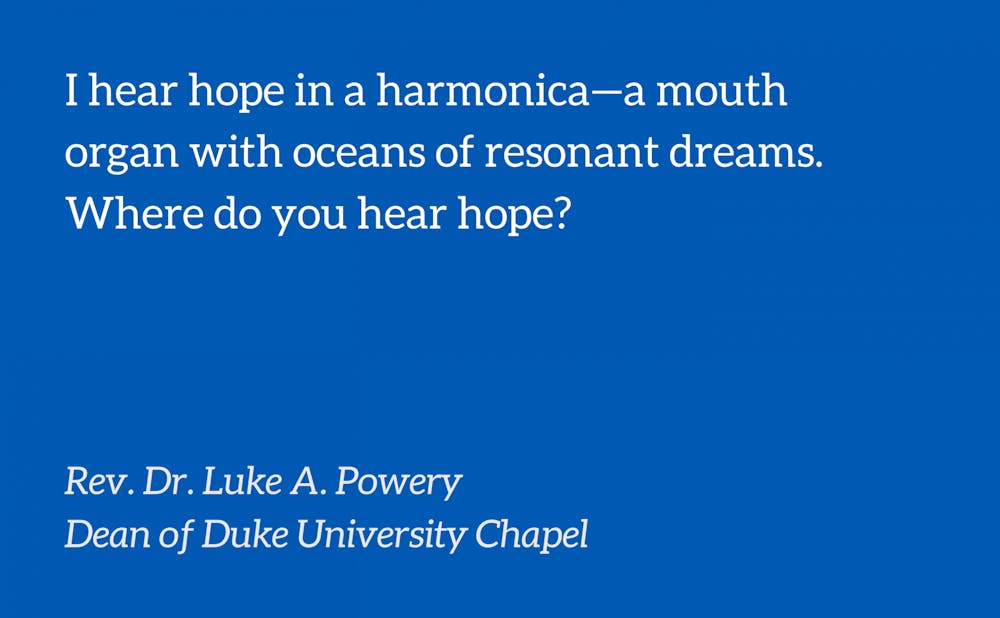I grew up in a very musical family and I’m the last of five children. My father is a preacher and whenever he traveled to speak somewhere, we would go with him to sing. We weren’t The Jackson 5 but The Powery 5! My oldest brother played the trombone. My second brother, the saxophone. My third brother, the drums. My sister, when she got older, played the piano. My mother played the harmonica. And I, the youngest, walked around looking cute.
Music was not only an important part of church life; it was life, a way of life, a way through life. As W.E.B Dubois notes in his early twentieth century book, music was critical to “the souls of black folk.”
During the current pandemic, especially early on, I turned to my musical soul again, or perhaps it turned to me. In the eerie early days of the viral unknown, I was drawn to the singing of birds who still made melodies among the trees during a pandemic and thousands of deaths. What did they know about a song and music that we could learn?
So what I did was listen to all kinds of music, especially gospel music and reggae. But I did something else—I started to play the harmonica again, or as my mother’s family would call it—‘the mouth organ.’
It was a harmonica that I hadn’t touched in several years. It was tucked away in my Duke Chapel office drawer. I took it home when I went on sabbatical in the spring of 2020, when the COVID-19 virus began to spread. This harmonica was given to me many years ago by my mother when I went to college. Over the years, every now and then, I would pick it up to play, but not often until COVID came.
I began to sit on my front porch in a rocking chair and play the harmonica most evenings. It was musical therapy, music for music’s sake, for human’s sake. Only the birds and bugs and bees were my audience. They seemed to enjoy it. I found relief in the playing, but I also discovered a sense of hope, not only because of the power of music but because of a story my mother told me over the phone one evening as I sat in the rocking chair.
The harmonica had a history. That harmonica that my mother gave me was actually given to her— a gift that kept on giving. One of my mother’s sisters gave it to her at the time when my grandmother was dying in 1975. I had never heard this story.
That harmonica and I are almost the same age and when I hold it, I’m holding more than just a musical instrument. I’m holding family history, cultural ties, ancestral wisdom, musical traditions, and a deep sense of the importance of music in the face of death and dying and other dire situations. I’m holding the belief that we can still sing when life sucks, when pandemics come, when loved ones die, when life gets hard, and you don’t really know what to do. That harmonica reminds me of my singing soul, and it is a symbol of hope, a hope that has been passed on from loving, human hands to my own, making hope deeply communal so that I remember that I am not alone in this world.
Hope is the music that is made when no one thinks melodies are possible, like during a pandemic or a midterm exam. The Rev. Pauli Murray, an Episcopal priest, lawyer, and civil rights leader, said, “Hope is a song in a weary throat.” The poet Maya Angelou reminded us that even “the caged bird sings with a fearful trill, of things unknown, but longed for still.” Another poet, Emily Dickinson, heard hope in this way:
“Hope” is the thing with feathers -
That perches in the soul -
And sings the tune without the words -
And never stops - at all –
I hear hope in a harmonica—a mouth organ with oceans of resonant dreams. Where do you hear hope?
The Rev. Dr. Luke A. Powery is the Dean of Duke University Chapel.
Get The Chronicle straight to your inbox
Signup for our weekly newsletter. Cancel at any time.

